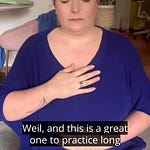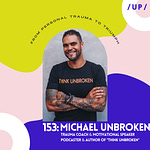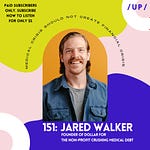Nkem Osian is a Public Health Analyst at the United States Department of Health and Human Services, where she analyzes and monitors Ryan White HIV/AIDS Programs in Los Angeles County. In this role, she ensures the uninsured, underinsured, and vulnerable individuals with HIV have access to optimal, life-saving treatment and care. In addition, Nkem is a patient advocate and member of the board of The White Dress Project (WDP), an organization focused on raising national awareness about the uterine fibroid epidemic and in filling the gaps in care, education, and research in the field. She herself lives with uterine fibroids, and shares her story to help break down the walls of silence that surround this common — and commonly unknown — gynecological condition.
Tune in as Nkem shares:
that she was first diagnosed with uterine fibroids in 2015 because of excessive bleeding and clots
that she normalized her body’s gynecological dysfunction until she was entirely unable to function at all
that she developed cardiomegaly (enlarged heart) to compensate for the lack of blood in her body caused by uterine fibroids
that she has yet to have fibroid surgery because of (not unreasonable) fears about the process
that she has been prescribed various forms of birth control to manage her bleeding
that BC is masking her symptoms and not treating the root cause, but she’s been working through her own fears about fibroid surgery
her concerns about fertility in relation to the presence of her fibroids
that she didn’t know how to effectively advocate for herself until she became a member of The White Dress Project
that she felt immense shame about her diagnosis until she made a friend who showed compassion and encouraged her to seek further care (and yes, people who work at HHS can indeed feel timid about their own health!)
that based on her research, individuals living with HIV are more likely to be victims of intimate partner violence (IPV)…and those living with intimate partner violence are more likely to contract HIV
the importance of community in patient advocacy — and how this work can strengthen our humanity
how collective action can make a difference
how fibroids have affected her relationships and experiences
from whence she draws her strength
why your relationship with your healthcare providers should be a partnership in your care














Share this post